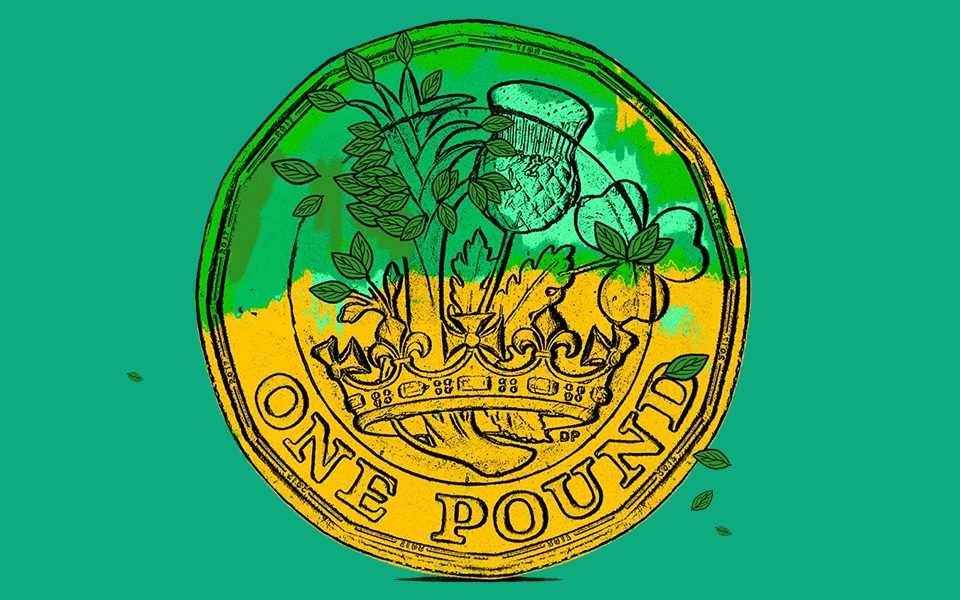
Renewable power companies will have their revenues capped in England and Wales, as the government clamps down on runaway profits.
The measures – described by the industry as a “de facto windfall tax” – will apply to low-carbon electricity generators like wind and solar.
However, the government has not capped oil and gas revenue, leading environmentalists to accuse it of “double standards”.
The UK policy comes weeks after the European Union imposed a similar policy. In September, the EU imposed a price cap on low carbon energy producers. Any “excess profits” generated above €180 euros per megawatt hour (MWh) – less than half of the current cost – will be given to national governments.
Is the UK introducing a windfall tax on low carbon electricity producers?
A windfall tax is a one-off tax imposed by the government on a sector making huge profits from a situation it has no control over.about:blank
At the moment, the war on Ukraine is limiting gas supply in Europe and driving up gas prices. This in turn leads to high electricity prices. As a result, electricity sources that don’t rely on gas are experiencing increased demand.
This leads these generators to charge “abnormally high prices”, the UK Department for Business, Energy and Industrial Strategy (BEIS) says.
“Consumers are having to pay significantly more for energy generated from renewables and nuclear, even though this often costs less to produce,” they warn.
The UK cap will be applied on revenues, rather than retrospectively on excessive profits. The government has not yet specified what the revenue limit for these producers will be – and Business Secretary Jacob Rees Mogg denied that it constituted a ‘windfall tax’.
Earlier this year, British lawmakers approved a 25 per cent windfall tax on oil and gas producers in the British North Sea. However, the government has not capped revenue for these producers.
How did the renewables industry react to the UK windfall tax?
The renewables industry has slammed the tax.
“We are concerned that a price cap will send the wrong signal to investors in renewable energy in the UK,” says Dan McGrail, chief executive of RenewableUK.
“A price cap acting as a 100 per cent windfall tax on renewables’ revenue above a certain level, while excess oil and gas profits are taxed at 25 per cent, risks skewing investment towards the fossil fuels that have caused this energy crisis.”
The solution should be targeted at fossil fuel producers, says Keith Anderson, chief executive of Scottish Power.
“It’s disappointing that such a significant market intervention by the government has come with so little detail – all this does is create uncertainty,” he says.
“This crisis has been caused by the cost of gas, and it’s strange the proposed solution is to cap the price of low-carbon generation and to leave the gas sector untouched.”
Greenpeace UK called on the government to extend its tax to fossil fuel polluters.
“Was it just a dream or did we all hear the prime minister say, just weeks ago, she was against a windfall tax?” Dr Doug Parr, policy director at Greenpeace UK, told BusinessGreen.
“Now she’s going to impose a de facto one after all, but only on electricity generators, not a proper one on oil and gas firms. This glaring double standard makes no sense.”
Does Europe have a windfall tax on renewable energy?
The EU hopes to raise around €140 billion by taxing the “abnormally high profits” of energy companies.
Most of this money will come from the price cap on renewables.
However, they will tax the profits of oil and gas producers too. EU nations would also be able to collect a “temporary solidarity contribution” from fossil fuel companies earning over 20 per cent more than their average over the last three years. This would amount to a third of the excess profits they have made in 2022.
“These companies are making revenues they never accounted for, they never even dreamt of,” Commission President Ursula von der Leyen told EU lawmakers in September.
“In these times, profits must be shared and channelled to those who need it most.”
Article rights reserved to https://www.euronews.com/green/2022/10/12/glaring-double-standard-uk-government-imposes-de-facto-windfall-tax-on-renewable-energy
